How Safe Is Costa Rica?
Costa Rica has become one of the most popular expat and digital nomad destinations in Latin America, known for its natural beauty, relaxed lifestyle,...
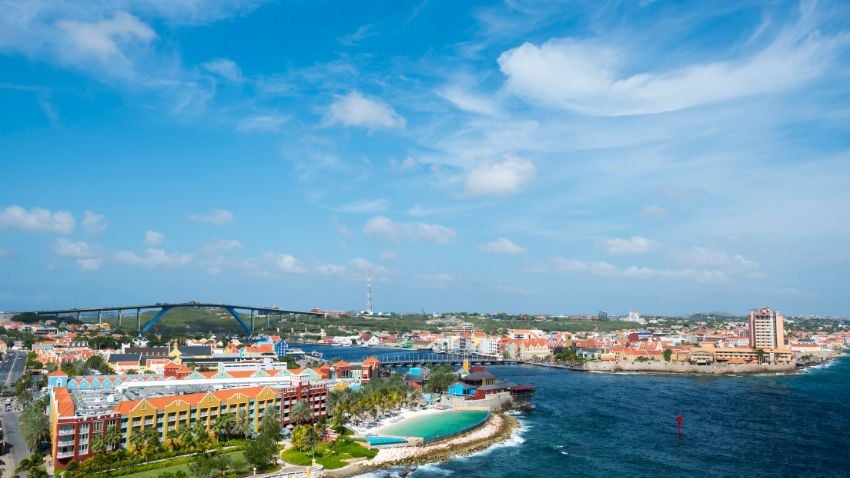
7 min read
The beautiful island country of Curaçao has many opportunities for those wishing to live there. There is much to enjoy, from amazing beaches, breathtaking scenery, and a wonderfully warm climate to a unique cultural background and great professionals, while enjoying ample market opportunities. Applying for residency in Curaçao is relatively simple compared to many other places, and they offer ample opportunities for you.
Life in Curaçao as an expat is an exciting adventure filled with diverse experiences. The island's rich cultural heritage and welcoming atmosphere make it a perfect destination for individuals from different countries. Many expats find employment opportunities through international companies, providing a chance to work in a global setting. While the cost of living can be a consideration, access to affordable housing and transportation options helps manage expenses.
Before you start discovering what life in Curaçao is like, I strongly suggest you claim your free special report, Plan-B Residencies and Instant Citizenships. It comes with the intel you need to get a second residency and even a solid second passport. You don’t want to miss it.
Curaçao is an island within the Kingdom of the Netherlands and a Caribbean island. The location is around 37Mi (60Km) north of Venezuela's coast. Curaçao and surrounding islands off the northern coast of South America are typically referred to as the southwestern arc of the Lesser Antilles, even though they are physically a part of the South American continental shelf. The country's capital is Willemstad.
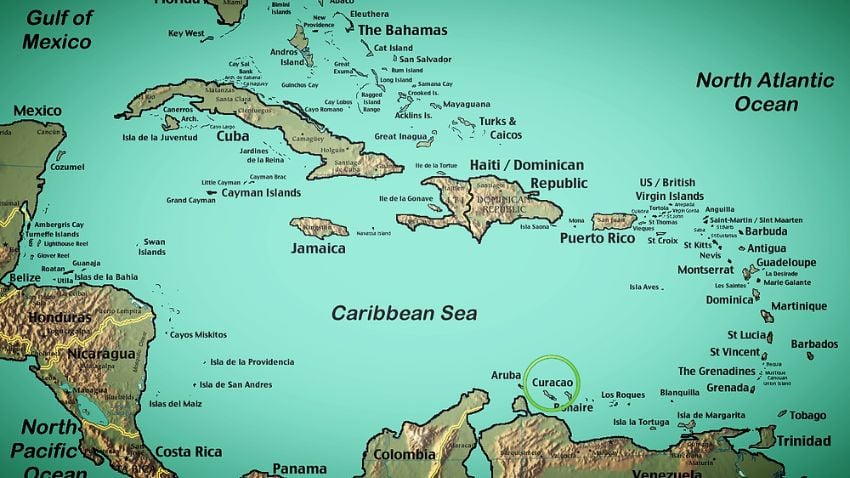
Life in Curaçao as an expat is an exciting adventure filled with diverse experiences
Along with its sister islands, Bonaire and Aruba, Curaçao is located in the Southern Caribbean Sea. On October 10, 2010, Curaçao joined the Kingdom of the Netherlands as an independent nation due to a referendum and a constitutional amendment. Since then, Curaçao has become an independent nation in charge of its own internal affairs, with the Kingdom handling only certain spheres, including extradition, defence, and international relations. The six Caribbean islands that together make up the Caribbean region of the Kingdom of the Netherlands include Curaçao, which is the largest.
Interacting with the friendly locals and connecting with fellow expats creates a sense of community and a chance to learn from diverse perspectives. Curaçao's unique blend of cultures and picturesque landscapes make it an attractive destination for visitors from around the world. With lots to explore, Curaçao offers a fulfilling experience for anyone with plans to live as an expat.
Warm tropical temperatures predominate in Curaçao, with September being the warmest month. The climate is relatively dry due to low rainfall and mostly clear to partly cloudy skies. Although September through November is noted for having more rain, the island lies just outside the hurricane belt and hence does not see the region's more intense storms.
The island of Curaçao has an average annual temperature of 76°F (28°C), with seasonal variations rarely deviating from the average by more than a few degrees. The island also benefits from the Trade Winds, which bring warmth at night and cool during the day, resulting in a comfortable environment all day.
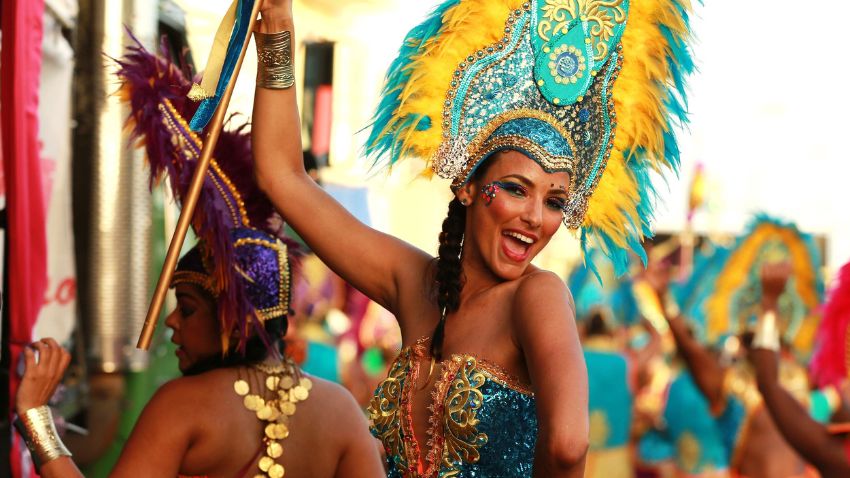
Curaçao is a delightful mix of local and international flavors, offering expats a plethora of food options to indulge in
Curaçao has an interesting, if not at times pretty contrasting, cultural dynamic. In Curaçao, there is a visible distinction between the African culture and the Dutch cultural influence. They exist alongside one another. The African culture heavily influences the country's cuisine, whereas the Dutch influence is scattered around Willemstad and in plantations in the countryside.
Roman Catholicism predominates in Curaçao, where celebrations of holidays are treated very seriously. Particularly Carnival, which lasts for more than a month, is very popular here. Be ready for raucous processions through the streets and colourful masquerades if you're going in January or February. The majority of businesses on the island are likewise closed on Sundays due to the popularity of Catholicism.
Moreover, the culinary scene in Curaçao is a delightful mix of local and international flavors, offering expats a plethora of food options to indulge in. Exploring the island reveals an array of beautiful beaches, historical sites, and outdoor activities, ensuring there's always something new to discover.
The island's population is multicultural, and this is further reflected in the language used. There are three official languages in Curaçao: Dutch, English, and Papiamentu, a native tongue that is a fusion of Portuguese, Spanish, and Dutch.
Spanish is also a common language on the island. Because of Curaçao's significant immigrant population, many population groups also speak other languages, such as Portuguese, French, and German.
Based on the Dutch educational system Dutch is the official language in public education. The University of Curaçao, which enrolls more than 2,000 students, is the primary institution of higher learning.
The island provides higher education through its offshore medical school, language schools, fine art, music, police, teacher, and nurse training academies. As a result, Curaçao has a highly skilled workforce.

Doctor taking patient's pressure
There are two general hospitals, one surgery hospital, and one maternity clinic in Curaçao. Curaçao will soon open the doors of a renovated healthcare facility, improving support for the island's already highly skilled medical specialists. Hospital renovations for the major St. Elisabeth's hospital are already underway.
Numerous private insurance companies, as well as the Social Insurance Bank, offer insurance (SVB). The island can provide uniform insurance to all citizens thanks to the 2013 launch of Basic Healthcare Insurance (BVZ). Under the BVZ Act, non-residents with a civil law labour contract and a business that must pay payroll taxes are also granted entry.
Related content: Residency In Bermuda: What's Available For You And Your Family.
The island is a nation with a stable political system in the Caribbean. With the basic precepts of freedom of association, the right to create political parties, freedom of the press, and freedom of expression, there is a parliamentary democracy with a separate legal system based chiefly on Dutch civil law.
Curaçao is entirely in charge of managing its own internal affairs, with the Prime Minister serving as the head of state. The Netherlands Kingdom is in charge of both defence and foreign policy.
The District Court and the Joint Court of Appeals, which hears appeals from decisions made by the District Court and covers all six Dutch Caribbean islands, are staffed by judges selected by the Dutch King. The Charter for the Kingdom of the Netherlands serves as the legal foundation for appeals to the Dutch Supreme Court.
The Charter guarantees sound government and the protection of human rights. Numerous well-known law firms have opened offices in Curaçao, ensuring high-quality legal services for advising, business formation, and court procedures.
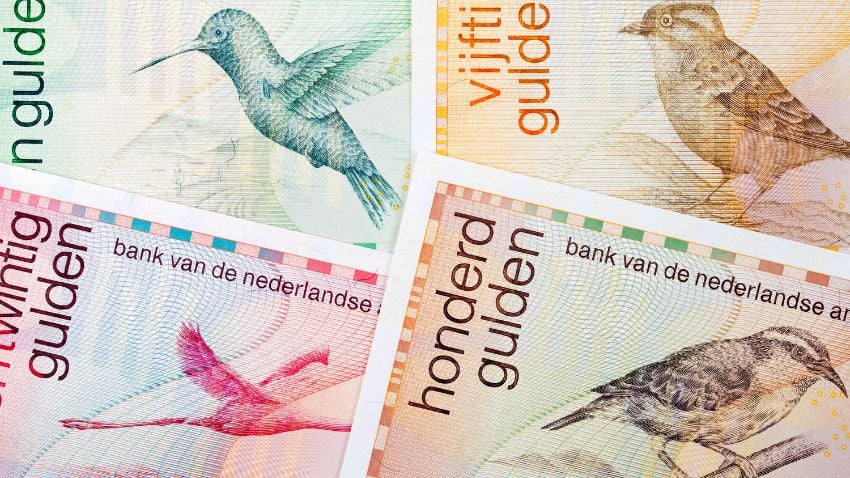
Curaçao offers a fulfilling experience for anyone with plans to live as an expat
Curaçao has an open and diverse economy driven by key sectors such as trade and shipping, logistics and dry dock services, international financial services, oil refining, and tourism. Its strategic location between the United States and South America, along with its status within the Kingdom of the Netherlands, provides strong commercial links that bolster economic opportunities.
According to the Centrale Bank van Curaçao en Sint Maarten (CBCS), economic growth is expected to rise from 4.2% in 2023 to 5.4% in 2024 before moderating to 3.2% in 2025, as outlined in its September 2024 Economic Bulletin.
To further diversify the economy, the government is actively seeking foreign investment through its "Open Arms" policy, which focuses on attracting IT businesses. The official currency of Curaçao is the Netherlands Antillean guilder (ANG).
A work permit is required if you wish to work in Curaçao. You need an employer to sponsor your work visa and start the application process to get such a permit. Tourists are not permitted to work or participate in any paid activities.
The United States of America and the Kingdom of the Netherlands have a treaty in place that governs the sharing of tax-related information, and Curaçao is a participant in this agreement. Additionally, Curaçao has adopted the entire tax framework that was previously in effect under the former Netherlands Antilles.
This system includes both corporate and individual taxes. For tax purposes in Curaçao, corporations can be classified as either resident or non-resident. The three most significant corporate taxes in Curaçao are income tax, profit tax, and dividend tax (dividendbelasting). For individuals, one of the applicable taxes is payroll tax (loonbelasting). Recently, Curaçao’s tax laws were updated through the National Decree on Tax Measures 2019 (the "Decree").
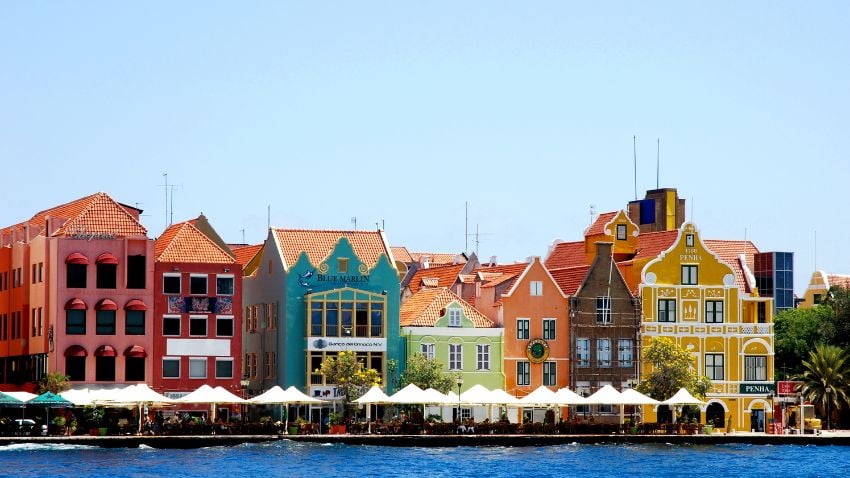
While the cost of living can be a consideration, access to affordable housing and transportation options helps manage expenses
Foreigners can purchase real estate in Curaçao without any limitations. When you visit this lovely island and obtain a residency visa, you may choose how you want to acquire property.
Either you may buy a property and take actual ownership with annual property taxes, or you can rent a property from the government. Typically, a 60-year lease is in place. The government determines the fee before the lease's expiration, when they may decide to renew it, by a number of criteria and stays the same.
Related article: The Basics Of How To Get A Second Passport Or A Second Residency.
The program requires a minimum investment of $280,000. A residency by investment visa is already provided by the Curaçao government and is known as an investor permit. Since 2014, the Curaçao government has started allowing investors to get a residency permit through an investment. The amount of investment determines the length of the investor's permit:
Options for qualifying investments under the program:
In 2021, the government altered the program to include the purchase of securities. The investment pool is also not constrained to the suggested alternatives. The government may add to the available investment opportunities or issue a residency permit in exchange for investment in other initiatives.
Upon having the investor permit application approved, the applicant will be given the following benefits and responsibilities:
The investor is permitted to live, work, and educate his family on the island. It is possible to apply for Dutch citizenship after five years. Islanders are regarded as citizens of the Netherlands or the European Union. There is no such thing as Curaçao citizenship.
The Curaçao government adds that the investor must submit a new permit application because the investor's residence permit is not automatically renewed. The government may expand the program over the next three to five years. Therefore the guidelines for the extension of status might alter.
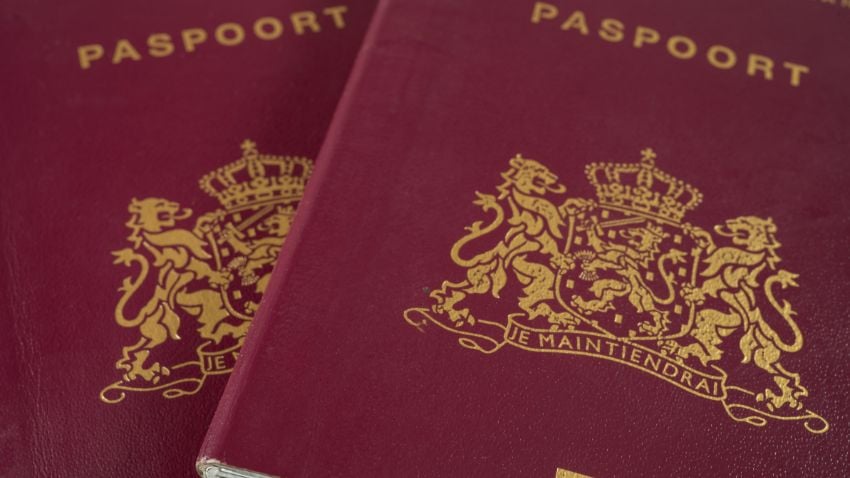
Dutch passport
A residency permit is required if you wish to live in Curaçao, but this does not make you a citizen of the Netherlands. Sufficient means of support are one of the prerequisites to be eligible to acquire such a permit. The residency permit may be denied if there are insufficient means of support.
To prevent their application from being rejected throughout the process, the applicant must remain outside Curaçao. The decision by the authorities to accept or reject the application may take up to 4 months.
Following application clearance, a security deposit is required; the sum depends on the applicant's country of origin. Once you leave Curaçao, this deposit is paid back to you.
A unique work-life balance and rhythm make Curaçao a great choice for residency. Suffice to say that it is a Caribbean Island, so there will be plenty of places to see, visit, and relax. Let’s not forget the amazing weather as well. Since Curaçao is currently welcoming economic diversities, making it an easy choice.
Although they may not have the lowest investment requirements, the minimum investment isn’t that much higher than most European residency by investment programs. With amicable taxes, straightforwardness, well-located, and ample business opportunities, Curaçao is a definite location for relocating you and your family.
If you want the best intel from the expat world, including profitable offshore opportunities, little-known tax-saving strategies, and hard-won insights on immigration, passports, and Plan-B residencies, all delivered to your inbox every single week, then join our daily correspondence, EMS Pulse®. Currently enjoyed by over 84,000 expats and expat-hopefuls worldwide. Fill in the form below to join our newsletter free:

Written by Mikkel Thorup
Mikkel Thorup is the world’s most sought-after expat consultant. He focuses on helping high-net-worth private clients to legally mitigate tax liabilities, obtain a second residency and citizenship, and assemble a portfolio of foreign investments including international real estate, timber plantations, agricultural land and other hard-money tangible assets. Mikkel is the Founder and CEO at Expat Money®, a private consulting firm started in 2017. He hosts the popular weekly podcast, the Expat Money Show, and wrote the definitive #1-Best Selling book Expat Secrets - How To Pay Zero Taxes, Live Overseas And Make Giant Piles Of Money, and his second book: Expats Guide On Moving To Mexico.
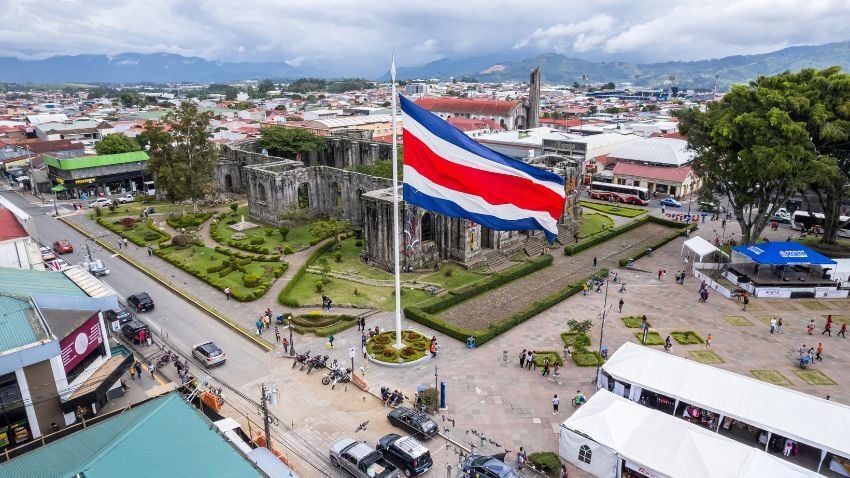
Costa Rica has become one of the most popular expat and digital nomad destinations in Latin America, known for its natural beauty, relaxed lifestyle,...

Mexico remains one of Latin America’s most compelling destinations, especially for North Americans. More than a million expats call it home, and tens...

South Korea is far more than K-pop and K-dramas. It is a country known for outstanding food, from bustling street markets to high-end dining, as well...